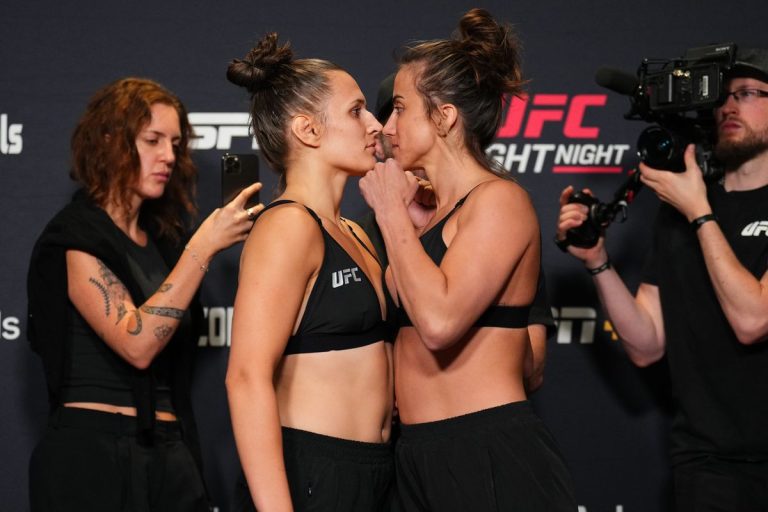There’s nothing more exciting in the UFC than when a big underdog surprises everyone and wins the fight. The crowd goes wild, the fighters’ careers can change overnight, and fans are left in shock. These surprise wins – whether it’s a knockout or a sneaky submission – are what make UFC so unpredictable and fun to watch.
But what does “underdog” actually mean in UFC betting? It’s simple: an underdog is the fighter that most people think will lose. Betting sites give them higher odds, which means if they do win, you get a bigger payout. The opposite is the “favorite,” who is expected to win and has lower odds.
So, the big question is – how often do these underdogs win in the UFC? And why do they pull it off? It’s not always about luck. There are lots of reasons behind an upset, and we’re about to break it all down.
Let’s take a closer look at the numbers and the reasons behind these exciting underdog wins.
The Numbers Game: How Often Do Underdogs Win?
When you look at the vast history of UFC fights, the statistics show a consistent trend: underdogs win approximately 30% to 32% of the time.
What does this mean? It means that while the “favorite” (the fighter expected to win) takes home the victory in about 68% to 70% of bouts, the underdog still manages to defy expectations nearly one-third of the time. This might seem like a small percentage, but in a sport as dynamic as mixed martial arts, it’s significant. The reason these wins are so exciting, especially for bettors, is that the higher odds on underdogs mean a much larger payout when they do come through.
These percentages are based on historical data collected over thousands of fights across various weight classes and events. It’s important to remember that oddsmakers are very good at what they do. They set the odds to reflect the most likely outcome, but they also build in a small commission, often called the “juice” or “vigorish.” This “juice” is why the implied probability of both fighters winning (based on their odds) often adds up to more than 100%. It’s the sportsbook’s way of ensuring a profit, regardless of the outcome.
What Makes an Underdog Win? Factors Behind UFC Upsets
So, if underdogs are supposed to lose, what causes these surprising victories? It’s rarely just a fluke. A combination of strategic brilliance, raw power, and the unpredictable nature of combat sports often leads to these memorable upsets.
“Styles Make Fights”
This is one of the oldest sayings in combat sports, and it holds a lot of truth. Sometimes, a fighter who isn’t considered the “best” overall might have a specific skill set that perfectly counters their opponent’s strengths.
- Example: An elite grappler with incredible takedowns and submissions might face a highly touted striker who has weak takedown defense. Even if the striker is generally considered more skilled, the grappler’s specific style could lead to a dominant win and an upset. It’s about how two different fighting styles clash, not just who has the better record.
The “Puncher’s Chance”
In MMA, a fight can end in an instant. One perfectly timed, powerful strike can turn the lights out for even the most dominant favorite. This is known as the “puncher’s chance.”
- Even if a fighter is losing every minute of a bout, if they land one clean shot, the fight can be over. Fighters known for their knockout power always carry this threat, making them dangerous underdogs.
Fatigue and Cardio
MMA fights are incredibly demanding, especially championship bouts that go five rounds. A fighter’s endurance, or “cardio,” can be a huge factor.
- If a favorite starts strong but tires in the later rounds, an underdog with superior conditioning can take over, capitalize on their opponent’s exhaustion, and secure a late-fight finish or win on the judges’ scorecards.
Injuries (Pre-fight or In-fight)
Fighters often step into the octagon with hidden injuries that the public (and even some bettors) don’t know about. These can severely impact their performance.
- Additionally, injuries sustained during the fight, like a twisted ankle, a deep cut, or a broken nose, can dramatically shift momentum and give the underdog an unexpected advantage.
Mental Warfare & Composure
The psychological aspect of fighting is often underestimated. The pressure of a big fight, intense trash talk from an opponent, or simply cracking under the bright lights can affect a fighter’s performance.
- An underdog with strong mental resilience and composure can often perform better than expected, especially if their favored opponent gets rattled or deviates from their game plan due to emotional factors.
Short-Notice Fights
Sometimes, a fighter steps in to replace an injured opponent with very little preparation time. While this is usually a disadvantage, if the short-notice fighter is always in shape and the favorite struggles with last-minute opponent changes, it can lead to an upset. The short-notice fighter might be highly motivated and have less pressure on them.
Judging Decisions
MMA fights that go the distance (don’t end in a knockout or submission) are decided by judges. Judging can sometimes be subjective, and close rounds can swing either way.
- An underdog who shows more aggression, lands more significant strikes, or achieves crucial takedowns in tight rounds might surprisingly get the nod from the judges, leading to an upset decision.
Notable UFC Underdog Victories (Examples)
History is filled with incredible UFC upsets that highlight these factors:
- Holly Holm vs. Ronda Rousey (UFC 193): Ronda Rousey was an undefeated, seemingly invincible champion, a massive favorite. Holly Holm, a former boxing champion, came in with a brilliant game plan, utilizing her striking and movement to avoid Rousey’s grappling and eventually deliver a stunning head-kick knockout. This was a classic “styles make fights” and “unexpected game plan” upset.
- Matt Serra vs. Georges St-Pierre (UFC 69): Georges St-Pierre was a rising superstar and a heavy favorite. Matt Serra, a submission specialist, was considered a long shot. Serra landed a powerful punch early in the fight that rocked GSP, leading to a TKO victory. This demonstrated the power of the “puncher’s chance” even against a dominant opponent.
- Julianna Peña vs. Amanda Nunes (UFC 269): Amanda Nunes was widely considered the greatest female fighter of all time, holding two belts and having not lost in years. Julianna Peña, a significant underdog, pushed the pace, absorbed Nunes’ best shots, and ultimately submitted the champion in the second round after Nunes appeared to tire. This was a testament to “fatigue and cardio” combined with unwavering “mental composure.”
How Underdog Wins Impact Betting Strategy
The frequent occurrence of UFC upsets, combined with their higher payouts, makes underdogs a fascinating area for bettors. However, it’s not about blindly betting on every underdog. The key is identifying “value” underdogs.
The Allure of High Payouts: Betting on a favorite might give you a higher chance of winning, but the payout is often small. Underdogs offer the potential for a much larger return on your investment, making them appealing to those looking for bigger wins.
Identifying “Value” Underdogs: A “value” underdog is a fighter whose actual chance of winning is higher than what the betting odds suggest. This is where your research comes in. You’re looking for situations where the oddsmakers might have overlooked a crucial factor.
Key Research Points for Underdog Bets:
Deep Dive into Fighter Stats: Look beyond simple win/loss records. Examine striking defense, takedown accuracy, significant strikes landed, control time, and how they perform against different styles.
Analyzing Recent Performances: Has the favorite shown any vulnerabilities recently? Is the underdog on an upward trajectory, even if their record isn’t perfect?
Considering Stylistic Matchups: Does the underdog’s best weapon directly counter the favorite’s biggest weakness? This is often more important than overall skill levels.
Bankroll Management: Betting on underdogs comes with higher risk. It’s crucial to practice responsible betting by setting a strict budget and never betting more than you can afford to lose. Don’t chase losses, especially with underdog bets.
Conclusion: The Ever-Present Possibility of the Upset
While favorites do win the majority of UFC fights, underdogs win frequently enough—around one-third of the time—to keep the sport incredibly exciting and offer valuable betting opportunities. The unpredictable nature of MMA means that anything can happen in the octagon, from a single knockout punch to a grueling five-round war decided by the judges.
The underdog story is a fundamental part of sports, and in the UFC, it’s a constant reminder that heart, skill, a well-executed game plan, and sometimes just a bit of luck, can overcome even the longest odds. So, the next time you’re watching a UFC event, keep an eye on those underdogs – they just might surprise you and make history.


